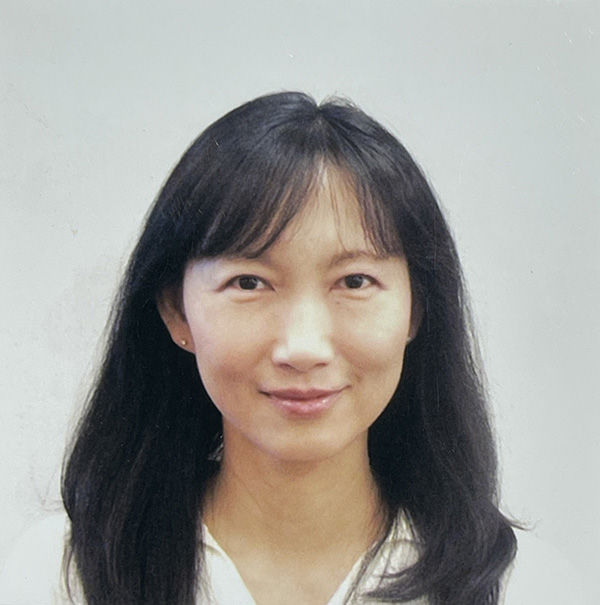
Research
The focus of the Cheng laboratory is to elucidate the molecular mechanisms underlying cell death with the hope that the knowledge derived from our research can be translated into mechanism-based therapeutic strategies that effectively trigger cancer cell death and enhance anti-cancer immune memory. We employ molecular cell biology, biochemistry, quantitative proteomics, genome-wide genetic screens, high-throughput chemical screens, state-of-the-art single-cell omics, and genetically engineered mouse models to dissect cell death pathways both in vitro and in vivo. We are particularly interested in the impact of different types of cell death (apoptosis, BAX/BAK-dependent immunogenic cell death, pyroptosis, necroptosis, ferroptosis, etc.) on tumor-immune crosstalk and immunotherapy. The overarching goal of our research is to develop novel cell death mechanism-based anti-cancer therapy that not only eliminates cancer cells but also generates anti-tumor immunity and enhances immunotherapy.
The research of the Cheng laboratory has helped delineate the mammalian core apoptotic pathway governed by the BCL-2 family proteins at the mitochondrion. Specifically, we have elucidated how BAX and BAK are activated to form the apoptotic machinery, presented “sequestration model” by which anti-apoptotic BCL-2 family members inhibit apoptosis, identified gatekeepers of apoptosis, mapped apoptotic signaling networks, and modeled apoptosis in mice. Our studies concluded an “interconnected hierarchical model”, which not only offers a common ground deciphering the complex interplays among the BCL-2 subfamilies but also provides a molecular blueprint concerning the clinical application of BH3-mimetics, such as venetoclax (ABT-199, a BCL-2 selective inhibitor) and navitoclax (ABT-263, a dual inhibitor of BCL-2 and BCL-XL) in killing cancer cells. Our recent work has established a predictive paradigm for determining cancer addiction to anti-apoptotic BCL-2 family members, which may help guide future practice of precision cancer medicine targeting the BCL-2 family.
Our current efforts are aimed at delineating aberrant survival/death signaling pathways in cancer, studying epigenetic regulation of cell death and epigenetic mechanisms of resistance to targeted therapy, interrogating the impact of cell death on tumor-immune crosstalk and immunotherapy, and identifying therapeutic strategies that trigger potent immunogenic cell death in cancer. For the past few years, our research efforts have expanded to studying the epigenetic regulators that are commonly deleted/mutated in kidney cancer such as SETD2. On this front, we are investigating whether and how loss of these novel tumor suppressors that modulate the epigenetic landscape of cancer genomes may control survival/death to promote tumorigenesis and engender therapeutic vulnerabilities.
Current Projects:
- Cell death mechanisms
- Immunogenic cell death
- Immunogenic anticancer therapy
- Epigenetic mechanisms of resistance to targeted therapy
- Epigenetic tumor suppressors
Bio
Cheng earned her M.D. degree from Taipei Medical University and her Ph.D. degree in Pharmacology and Molecular Sciences from Johns Hopkins University School of Medicine. She completed Anatomic Pathology residency training at Barnes-Jewish Hospital of Washington University Medical School and Brigham & Women’s Hospital and postdoctoral training at Dana-Farber Cancer Institute. Cheng joined the faculty of Medicine and Pathology & Immunology at Washington University School of Medicine in 2004 and rose to the rank of Associate Professor. She joined Memorial Sloan Kettering Cancer Center in 2010 and is now a Member at MSKCC and a Professor at Weill Cornell Medical College.
Distinctions:
- NCI Howard Temin Award (2003)
- Searle Scholar Award (2005)
- ACS Research Scholar Award (2010)
Selected Publications:
Ren D, Tu HC, Kim H, Wang GX, Bean GR, Takeuchi O, Jeffers JR, Zambetti GP, Hsieh JJ, Cheng EH. 2010. BID, BIM, and PUMA are essential for activation of the BAX- and BAK-dependent cell death program.
Chen HC, Kanai M, Inoue-Yamauchi A, Tu HC, Huang Y, Ren D, Kim H, Takeda S, Reyna DE, Chan PM, Ganesan YT, Liao CP, Gavathiotis E, Hsieh JJ, Cheng EH. 2015. An interconnected hierarchical model of cell death regulation by the BCL-2 family.
Inoue-Yamauchi A, Jeng PS, Kim K, Chen HC, Han S, Ganesan YT, Ishizawa K, Jebiwott S, Dong Y, Pietanza MC, Hellmann MD, Kris MG, Hsieh JJ, Cheng EH. 2017. Targeting the differential addiction to anti-apoptotic BCL-2 family for cancer therapy.
Tanaka K, Yu HA, Yang S, Han S, Selcuklu SD, Kim K, Ramani S, Ganesan YT, Moyer A, Sinha S, Xie Y, Ishizawa K, Osmanbeyoglu HU, Lyu Y, Roper N, Guha U, Rudin CM, Kris MG, Hsieh JJ, Cheng EH. 2021. Targeting Aurora B kinase prevents and overcomes resistance to EGFR inhibitors in lung cancer by enhancing BIM- and PUMA-mediated apoptosis.
Xie Y, Sahin M, Sinha S, Wang Y, Nargund, AM, Lyu Y, Han S, Dong Y, Hsieh JJ, Leslie CS, Cheng EH. 2022. SETD2 loss perturbs the kidney cancer epigenetic landscape to promote metastasis and engenders actionable dependencies on histone chaperone complexes.
